
27 July – 31 August
After Herbert von Karajan’s resignation from the Board of Directors, a selection committee was set up to deal with his succession. Even before this was settled, Herbert von Karajan died on 16 July 1989 at the age of 81 in his house in Anif.
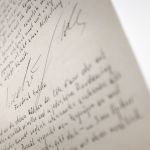
27 July – 30 August
The competing of the ‘Scene’ continued to cause further tumult in the Festival District. Besides local stars and international ensembles, Festival artists like Friedrich Gulda, Gidon Kremer and Rolf Hochhuth used the alternative forum more and more to present new contexts for their art.

26 July – 31 August
A row about the freedom of artistic expression rocked the Festival in 1987: George Tabori’s production of Franz Schmidt’s Das Buch mit sieben Siegeln was prohibited after the first night. To the clergy, the drastic world of images conceived by the director seemed incompatible with the consecrated church building.

26 July – 31 August
Three world premières were scheduled for 1986: the opera programme presented Die schwarze Maske/The Black Mask by Krzysztof Penderecki. The Bernhard series came to an end with Ritter, Dene, Voss.
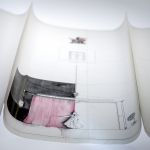
26 July – 1 September
We meet another ageing theatre man in Bruscon, the main protagonist in Bernhard’s Der Theatermacher, which was premièred in 1985 at the Landestheater/State Theatre under the direction of Claus Peymann. The actor Bruscon is obsessed with the theatre and wants to perform his comedy of mankind, Das Rad der Geschichte/The Wheel of History, in a village inn, but in the end doesn’t succeed.
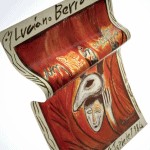
26 July – 31 August
In 1984 – yet again in co-production with the Vienna State Opera – the Small Festival Hall hosted the world première of Luciano Berio’s azione musicale Un re in ascolto after a libretto by Italo Calvino. Berio, alongside Luigi Nono, is counted among the leading exponents of the musical avant-garde in Italy and was awarded the Ernst von Siemens music prize in 1989.
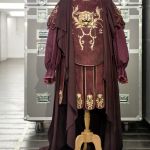
26 July – 30 August
Summer 1983 was overshadowed by the death of the Festival President Josef Kaut and also of the Festival architect Clemens Holzmeister. Jean-Pierre Ponnelle and James Levine completed their Mozart cycle with Idomeneo in that year, with Luciano Pavarotti, who interpreted the title role.
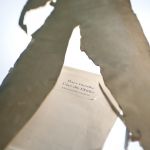
25 July – August 30
In 1979, the author Peter Handke had taken up residence at a friend’s of his youth, Hans Widrich, on Mönchsberg, Salzburg. ‘During our walk talks’, relates Widrich in retrospect, ‘I found out about his worries about his parents’ house.’
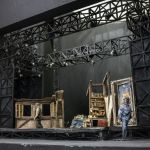
26 July – 31 August
Friedrich Cerha is renowned as an important advocate of modern music and one of the leading contemporary composers.
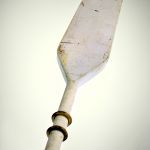
26 July – 31 August
While another much appraised production by Jean-Pierre Ponnelle was enriching the repertoire in the Large Festival Hall with Plácido Domingo in the title role of Les Contes d’Hoffmann, the Small Festival Hall was putting on a new production of Mozart’s Entführung aus dem Serail under the baton of Lorin Maazel.
1980s
The 1980s were characterized by the trend towards contemporary art and a simultaneous clinging to outdated programme structures. The dawn of a new era was signalled between these charged polarities.
The contemporary repertoire at first became palpable in concert planning. Many works, among them by Helmut Eder, Gerhard Wimberger, Cesar Bresgen, Gottfried von Einem, Gerhard Winkler, Alfred Schnittke and Arvo Pärt, received their first performances starting in 1980. These were followed by important world premières of operas by Friedrich Cerha, Luciano Berio and Krzysztof Penderecki, and also a cycle of opera in concert devoted to rarely played works of modern music. In straight drama, the series of Bernhard world premières continued. In 1982, another Austrian writer hit the headlines: with Über die Dörfer/Walk About the Villages, a work by Peter Handke was performed for the first time on the Festival stage.
The Festival also endeavoured – hesitantly – to open up its doors to the general Salzburg public, for instance by putting on an open day. In summer 1983, a ‘Karajan for all’ concert with the Berlin Philharmonic was broadcast on the Domplatz/Cathedral Square. In 1980, the State of Salzburg for the first time organized a Festival Opening Party. In summer 1982, this was the scene of a demonstration: members and sympathizers of the ARGE association protested against the sponsoring of ‘high culture’. Also the opening première and other Festival events were accompanied by protests.
In the mid-1980s, the debates about the orientation of the Salzburg Festival intensified. People slowly but surely realized that it had to be renewed. Therefore, in the late 1980s, the music manager Hans Landesmann was commissioned to work on a structural reform that provided for artistic and organizational re-planning. Likewise a selection committee was set up to deal with the issue of Karajan’s successor. Owing to age, Karajan had reduced his activities in Salzburg; in 1988, he declared his retirement from the Board of Directors. Nevertheless, Karajan’s death on 16 July 1989 was a shock – and simultaneously a caesura.
Already in the years prior to this, the Festival had seen long-serving Festival artists and leading figures taking their farewells: Karl Böhm died in 1981; in 1983, Clemens Holzmeister, the architect of the Festival District, and also Josef Kaut (Albert Moser succeeded him as President) passed away; in 1984, Ernst Haeusserman and Oscar Fritz Schuh died. Jean-Pierre Ponnelle, the stage director most frequently engaged in Salzburg in the two previous decades, died in 1988.
An era came to an end, a new one took shape. In August 1989, Hans Landesmann, representing the selection committee, proposed the new Festival management to the Supervisory Board. At the same time, while Europe and the entire world had to reinvent themselves with the fall of the Iron Curtain, in Salzburg a new chapter of Festival history was being opened.
